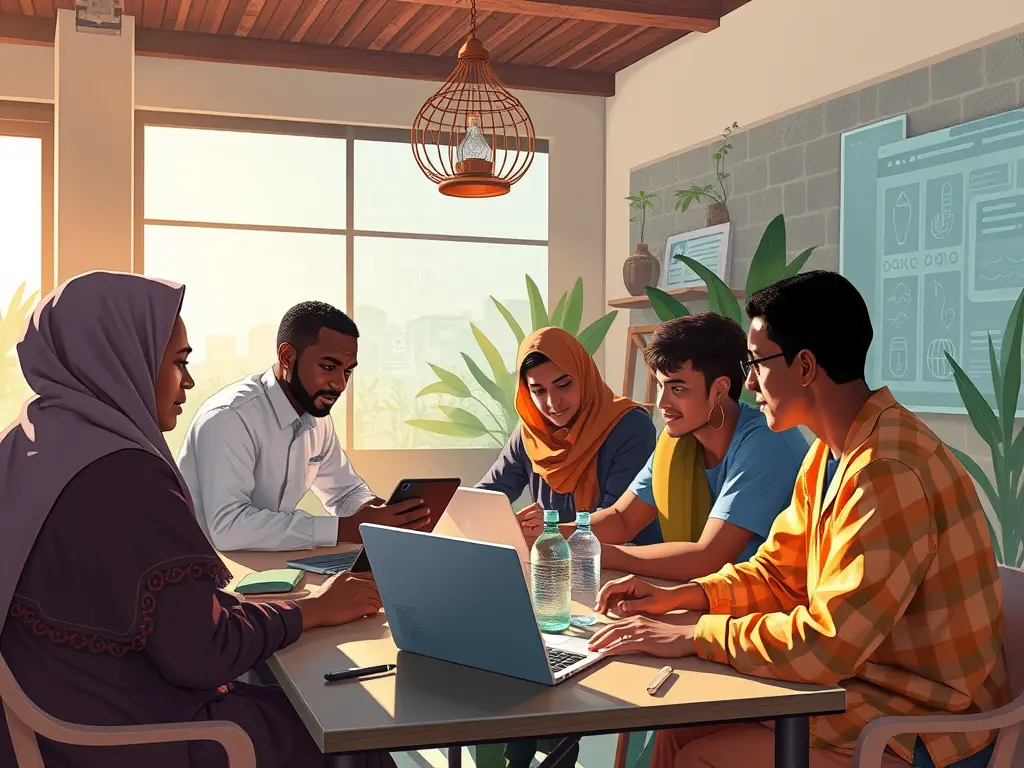When we think of mobile apps, many of us imagine services that make our lives easier, ordering food, navigating traffic, or connecting with friends. But across Morocco, a new wave of developers is reimagining what mobile technology can accomplish, creating solutions uniquely tailored to Moroccan social contexts.
I recently spoke during a developers meet up in Casablanca’s growing tech hub who are focusing not just on commercial opportunities, but on what they call “tech with purpose.” One of them told me something that resonated deeply: “Morocco doesn’t need another food delivery app. We need innovations that speak to our specific challenges, from water conservation to educational access to healthcare delivery.”
This perspective is gaining momentum. In the past three years, mobile initiatives addressing social challenges have received over 40% of Morocco’s tech investment funding, a significant shift that reflects both market realities and changing priorities.
Consider Fermatna, an app developed in Agadir that’s transforming agricultural practices in water-stressed regions. By combining weather data, satellite imagery, and traditional farming knowledge, it helps small-scale farmers reduce water usage while improving crop yields. What makes it exceptional isn’t just the technology, it’s how developers collaborated with farming communities, incorporating centuries of local agricultural wisdom into its design.
This collaborative approach represents a fundamental shift in how social impact apps are being developed across Morocco. Rather than imposing tech solutions from urban centers, developers are embedding themselves in communities, creating applications with-not just for-the people they aim to serve.
Dr. Nadia El Boukri, who leads Morocco’s Digital Inclusion Initiative, puts it this way: “The most successful mobile solutions in Morocco acknowledge our unique cultural context. They recognize that technology must adapt to existing social structures rather than expecting society to adapt to technology.”
This principle is evident across sectors. In education, apps like Darija Learn are addressing Morocco’s multilingual reality by providing literacy support across Arabic, French, Amazigh languages, and Moroccan Darija. In healthcare, rural telemedicine apps are integrating with traditional medicine practitioners rather than replacing them, creating hybrid models of care that respect cultural preferences while expanding access.
What’s particularly striking is how these apps navigate Morocco’s digital realities. Unlike applications designed for markets with universal high-speed connectivity, Moroccan social impact apps are pioneering offline-first approaches, low-bandwidth solutions, and interfaces that accommodate varying levels of digital literacy. These constraints aren’t limitations, they’re driving innovations that often prove more resilient than their counterparts in fully connected environments.
Of course, challenges remain. The digital divide between urban and rural Morocco persists. Approximately 37% of Moroccans still lack regular internet access. Data privacy frameworks are still evolving. But rather than waiting for perfect conditions, developers are creating adaptable solutions that can grow alongside digital infrastructure.
Looking ahead, the intersection of Morocco’s national AI strategy with mobile app development promises new possibilities.
Imagine agricultural apps that can process queries in local dialects through voice interfaces, eliminating literacy barriers. Or healthcare applications that combine modern diagnostics with traditional remedies, customized to regional practices.
The future of mobile apps in Morocco isn’t just about adopting global trends, it’s about creating distinctly Moroccan digital solutions that honor cultural context while addressing social challenges. As one young developer from Fez told me, “We’re not just coding apps—we’re coding our vision for Morocco’s future.”




